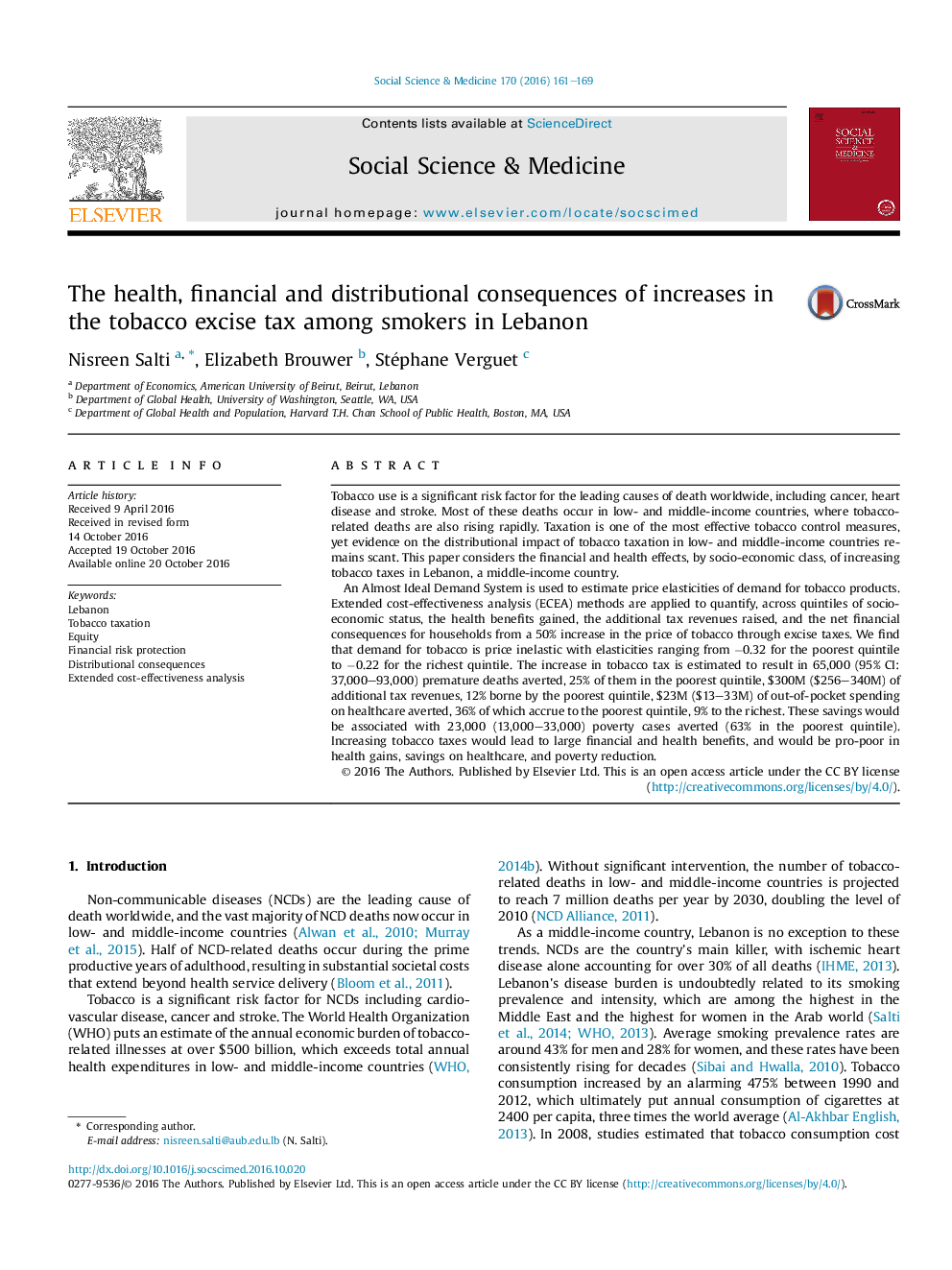| کد مقاله | کد نشریه | سال انتشار | مقاله انگلیسی | نسخه تمام متن |
|---|---|---|---|---|
| 5046865 | 1475999 | 2016 | 9 صفحه PDF | دانلود رایگان |
- Health benefits from higher tobacco taxes would be progressive in Lebanon.
- Health benefits also result in health expenditures averted which are pro-poor.
- Tax revenue raised from higher tobacco taxes is borne mostly by richer quintiles.
Tobacco use is a significant risk factor for the leading causes of death worldwide, including cancer, heart disease and stroke. Most of these deaths occur in low- and middle-income countries, where tobacco-related deaths are also rising rapidly. Taxation is one of the most effective tobacco control measures, yet evidence on the distributional impact of tobacco taxation in low- and middle-income countries remains scant. This paper considers the financial and health effects, by socio-economic class, of increasing tobacco taxes in Lebanon, a middle-income country.An Almost Ideal Demand System is used to estimate price elasticities of demand for tobacco products. Extended cost-effectiveness analysis (ECEA) methods are applied to quantify, across quintiles of socio-economic status, the health benefits gained, the additional tax revenues raised, and the net financial consequences for households from a 50% increase in the price of tobacco through excise taxes. We find that demand for tobacco is price inelastic with elasticities ranging from â0.32 for the poorest quintile to â0.22 for the richest quintile. The increase in tobacco tax is estimated to result in 65,000 (95% CI: 37,000-93,000) premature deaths averted, 25% of them in the poorest quintile, $300M ($256-340M) of additional tax revenues, 12% borne by the poorest quintile, $23M ($13-33M) of out-of-pocket spending on healthcare averted, 36% of which accrue to the poorest quintile, 9% to the richest. These savings would be associated with 23,000 (13,000-33,000) poverty cases averted (63% in the poorest quintile). Increasing tobacco taxes would lead to large financial and health benefits, and would be pro-poor in health gains, savings on healthcare, and poverty reduction.
Journal: Social Science & Medicine - Volume 170, December 2016, Pages 161-169
